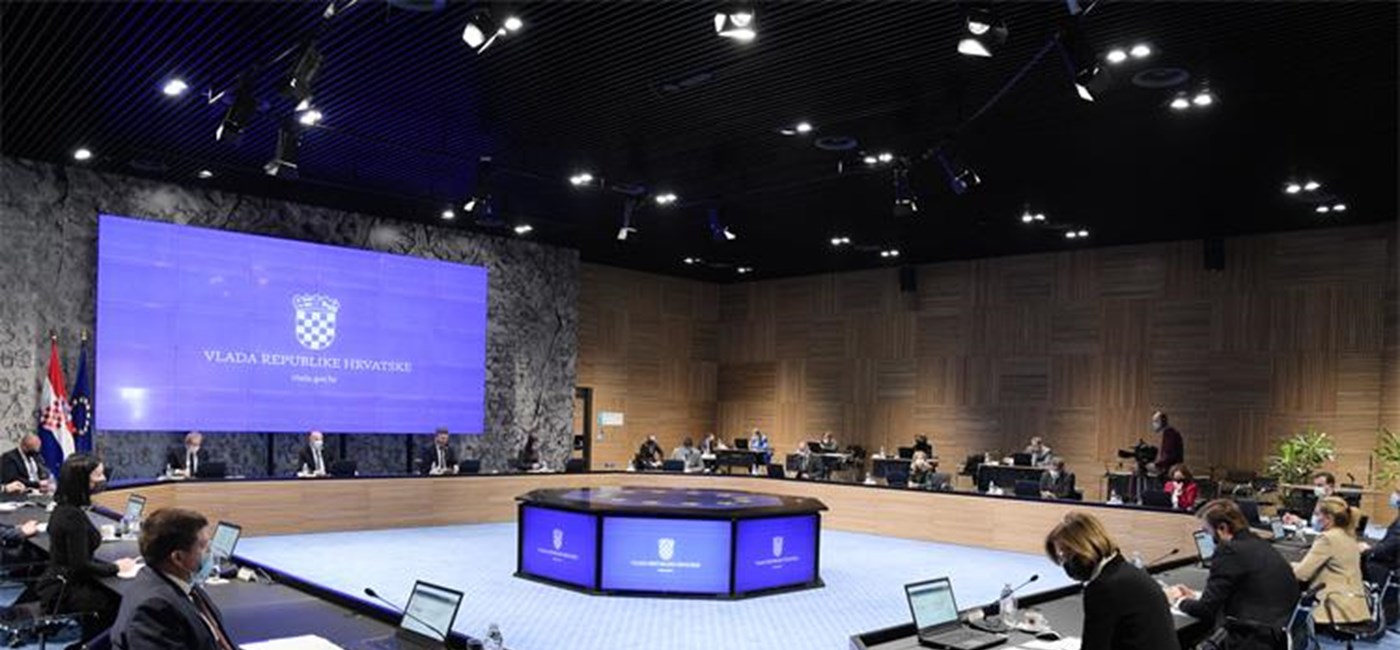The aid in goods and equipment will be provided from the available stockpiles of the Ministry of the Interior, the Ministry of Economy and Sustainable Development, the Ministry of Health, the Ministry of Foreign and European Affairs, and the Croatian Fire Service.
"The aid is being sent as a token of solidarity," Deputy Prime Minister Davor Božinović said, adding that Croatia was ready to assist Ukraine in mine clearance operations, by providing machinery and advisory services.
Božinović: Possible lifting or relaxing of COVID measures
Due to the fall in new COVID numbers, the relaxation of some COVID measures is being considered, primarily regarding the limit on the number of people allowed at gatherings.
"If these developments with the epidemiological situation continue until the end of the week, it is realistic that measures will be relaxed to a certain extent, primarily related to the restriction of gatherings," Božinović said.
Seeing that the majority of epidemiological measures in force are of limited duration until the end of the month, and considering the current epidemiological situation, where the daily number of new cases has been decreasing over the past few weeks, since the start of the week we have been considering the possibility of lifting certain measures and relaxing others, Božinović said.
The national COVID response team is examining what effect removing mandatory testing in public services and masks in education would have.
"The team plans to adopt some measures by the end of the week and to announce them on Monday, 28 February while some measures, in a milder version, will be extended until the end of March," he added.
Fall in new cases by 39%
Health Minister Vili Beroš recalled that tomorrow will be two years since coronavirus appeared in Croatia.
Today Croatia registered 2,559 positive cases confirmed by PCR and 1,348 by rapid antigen testing, which is a fall of 39% on the week.
In the five waves of the epidemic, Croatia has had 1,210,243 positive cases, 4,695,103 tests have been conducted, 74,136 patients have been hospitalised and 14,964 people have died as a consequence. A total of 5,189,032 doses of a vaccine have been administered and 2,305,857 citizens have been vaccinated.
By the end of the week 69,000 doses of protein vaccines are expected out of a total of 198,000 ordered for citizens aged over 18 who haven't been inoculated as yet.
Croatia plans to send up to 10 soldiers to NATO's rapid response force
The government has adopted a draft decision on deploying up to 10 Croatian soldiers in the NATO Response Force (NRF), the defence ministry stated on Thursday when Russia started invading Ukraine.
The draft decision has been forwarded to President Zoran Milanović, the supreme commander of the armed forces, for adoption, the press release reads.
According to Defence Minister Mario Banožić, Croatian troops will be part of the "Very High Readiness Joint Task Force" (VJTF) within the alliance's Response Force.
That means that they will be ready within a few days.
During the Prague summit in 2002, NATO decided on the establishment of its Response Force, and the Wales summit in 2014 decided on the set-up of VJTF.
In 2015, Croatia's parliament adopted decisions which paved the way for the deployment of Croatian soldiers in those units.
Earlier today, NATO Secretary-General Jens Stoltenberg said that the alliance had activated its defence plans on the deployment of additional forces in NATO's eastern members.
"Today, the North Atlantic Council decided to activate our defence plans, at the request of our top military commander, General Tod Wolters," Stoltenberg said and added that he has "called a virtual Summit of NATO leaders tomorrow, to address the way forward."
Text: Hina



